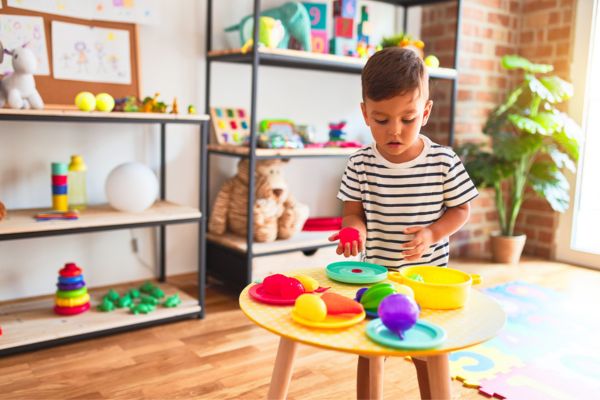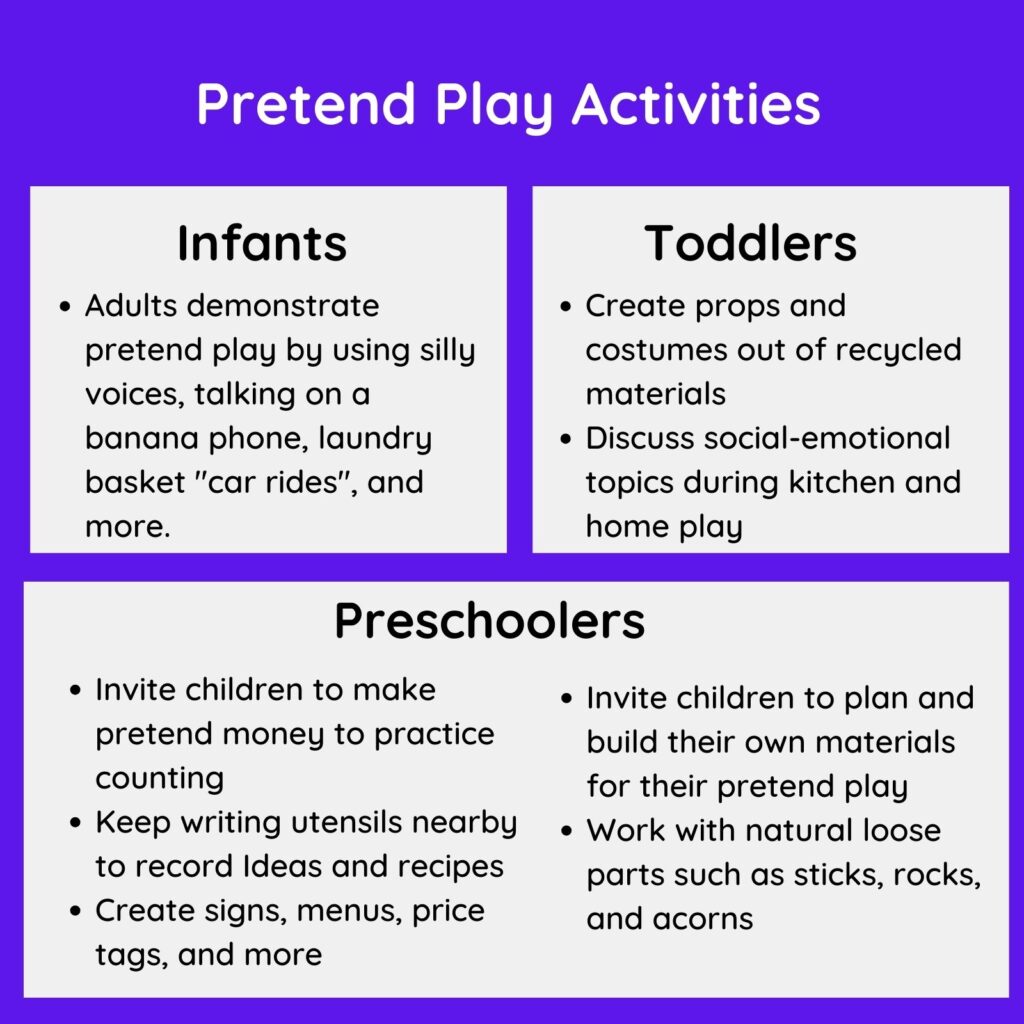
Children love pretend play! Whether hammering with a little plastic hammer, mashing a mud pie, or talking on a pretend telephone, many caregivers have seen children engage in rich pretend play, or sometimes called imaginative or dramatic play. In early childhood, caregivers may notice that children’s pretend play functions as a demonstration of their knowledge of the world around them—they reenact scenes from real life and take on roles of people and animals from the real world and imaginary world. Pretend play is considered a skill under the umbrella of cognitive development, but the benefits do not stop there—it is also a crucial skill to build for children’s social-emotional development, and it’s also a type of play where caregivers can embed plenty of school readiness skills as well. Pretend play can also be used to build language and physical skills, but in this post we will focus on cognitive, social-emotional and school readiness.
Let’s start with cognitive development and use a sample of pretend food, kitchen, or cooking. Even adults start with pretend play early on when working with infants, as they pretend to take a bite of food while saying “yummmmmy!” or feed children with the infamous pretend airplane zooming into an open mouth. The child giggles as the adult pretends to chew their food and he mimics the “yumm” sounds, or tries to take the spoon and feed the adult. When a toddler makes pretend cookies out of playdough, decorates them with buttons, and puts them inside of a cardboard box that she and her caregiver made to look like an oven—she is demonstrating in this moment that she understands the steps that go into baking cookies—the preparation, decoration, baking and then eating. She might demonstrate her knowledge of safety when she blows on the cookies to cool them down after they come out of the oven. Preschool children might turn their cookie play into a full bakery, as they demonstrate the work that goes into running the cash register, decorating our Open/Closed signs, or drawing pictures of their cookie menus.
With social-emotional development, children learn how to share, demonstrate empathy, and see the world through the eyes of others, whether their parents, animals, the hero, or the villain. This is great! Caregivers can use this as an opportunity to let children build their leadership skills as they run their own little veterinarian clinic for unicorns, or observe the ways that children interpret being the mother or father as they act out a “playing house” scenario. Or, caregivers can talk to children about the importance of taking care of others as children make a pretend soup out of natural materials for a sick teddy bear.
For school readiness, pretend play is an optimal time to naturally practice some literacy and math skills, without the pressure of drilling or preparing a ton of extra materials. For example, in the pretend cooking examples above, caregivers can help children count the natural materials for soup, invite children to scribble-write the recipe for their delicious play dough cookies, or show children how to read the numbers on a timer to put cookies in the oven for a specific amount of time. To engage children in more pretend play and get ideas for how to embed these skills naturally, the Rayz Kidz app is full of ideas for homemade costumes, toys, props, and more!
